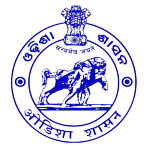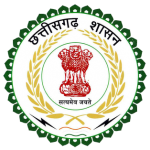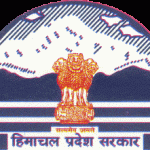Workforce Solutions
End-to-End Recruitment
Pay rolling
Statutory Compliance for payroll
Skills Portfolio
A high demand course amongst ITI graduates and 12th pass youth, Gram Tarang prepares over 1,000 youth per year for the auto component industry where young technicians learns to.
Sewing Machine Operater- A 3 month residential course providing employment assurance to youth with little no educational qualification in the garment export industry across Bangalore, Chennai & Tirupur.
Manufacturing Sector
Industrial Fitter | Industrial Electrician | Machinist | CNC Operator | CNC Programmer | Robotics & Mechatronics | Diploma Manufacturing | Electrical
Apparel & Textiles
Industrial Sewing Machine Operator | Line Supervisor | Quality Checker | Tailor | Diploma Apparel Manufacturing
Automotive Sector
Two Wheeler Service Technician | Motor Mechanic |Commercial Vehicle technician | Commercial Vehicle Driver | Forklift Operator | Forklift Technician
Retail & Hospitality
QSR Associate | Café Brewmaster | Diploma (Hospitality & Retail) | B Voc (Hospitality & Retail)
Healthcare
Medical Lab Technician | OT Technician | Optometry Technician | X Ray Technician
Where
- Gram Tarang currently operates in PAN India. It has a widefield network across villages and semi-urban centres in a hub and spoke model (a small number of mother centres with a number of satellite centres)
- Centurion University’s well-established college campuses serve as the mother centres. Gram Tarang has already set up another six satellite centres in Orissa and Andhra Pradesh
- Future geographical coverage will cover the states of Jharkhand, Chattisgarh, Bihar, Assam and Meghalaya, all of which are facing problems of high dropout rates in schools and colleges, resulting in a large number of unskilled human resources
Who
- The core team behind Gram Tarang includes the cofounders and leaders of the Centurion University, Prof DN Rao and Prof Mukti Mishra.Centurion University began rolling out vocational training programs in Orissa in 2006, and together with Gram Tarang has successfully trained over 7,500 students since 2011
- The Centurion University/Gram Tarang group has over 25 years experience in the education and development sectors, and a vast network across NGOs, Gram Panchayats in the areas of intervention
- The members and directors are professors and distinguished alumni of IIM, XIMB, other top Indian universities, and Victoria University (Australia)
How
- Candidates are sourced and mobilized using contacts with governments, NGOs, self-help groups and industry, and also through promotion and advertisement. Pipelines of candidates are mobilized from villages and towns in all of our target regions
- Technical training, soft skills training and industry specific job training in trades chosen on the basis of aptitude and interest assessment
- Existing network of Centurion University to guarantee at least 75% placements
- Industry sponsorships, government training/employment schemes and education loans are available to help students to finance their training costs. Gram Tarang offers various schemes to help students “earn while they learn” and pay for their own training fees
What
- GTETS is a social entrepreneurship initiative in skill building for employability and skill development of youth ranging from school dropouts to engineering graduates across the Eastern states of India
- The idea was seeded in 2006 with an intervention in Parlakhemundi district headquarter of Gajapati, one of the most Naxal affected districts of Orissa with a machinist training program for school dropouts run in the partnership with the Tool Room, Ministry of MSME
- Since then, Gram Tarang has trained over 70,000 youth across various industry sectors with a placement record of 78% through strong partnerships with the industry
- The most notable government partnerships include the NSDC, where Gram Tarang was selected as their second ever partner to train 45,000 youth by 2020, as well as the Ministry of Rural Development, where Gram Tarang is implementing a special project under SGSY aiming to train 10,000 BPL youth by 2013
Why
- 15 million young people need initial vocational training in India every year whereas the existing private and public institutional capacity is only 3 million
- China has 5,00,000 vocational training schools as opposed to India which has only 11,000
- Industry needs 10 million individuals to be trained through non-formal/informal mode each year,especially across trades such as machinists, welders,electricians,plumbers,mechanics etc.
- Unskilled young people cannot generate income productively, and therefore suffer social and economic exclusion. In many areas, they are target recruits for extremist groups.
Government Partners
Our consultants have industry-specific experience and an understanding of your what kind of trainings to be provided to create an efficient and talented workforce.








Industry Partners
Our consultants have industry-specific experience and an understanding of your what kind of trainings to be provided to create an efficient and talented workforce.








